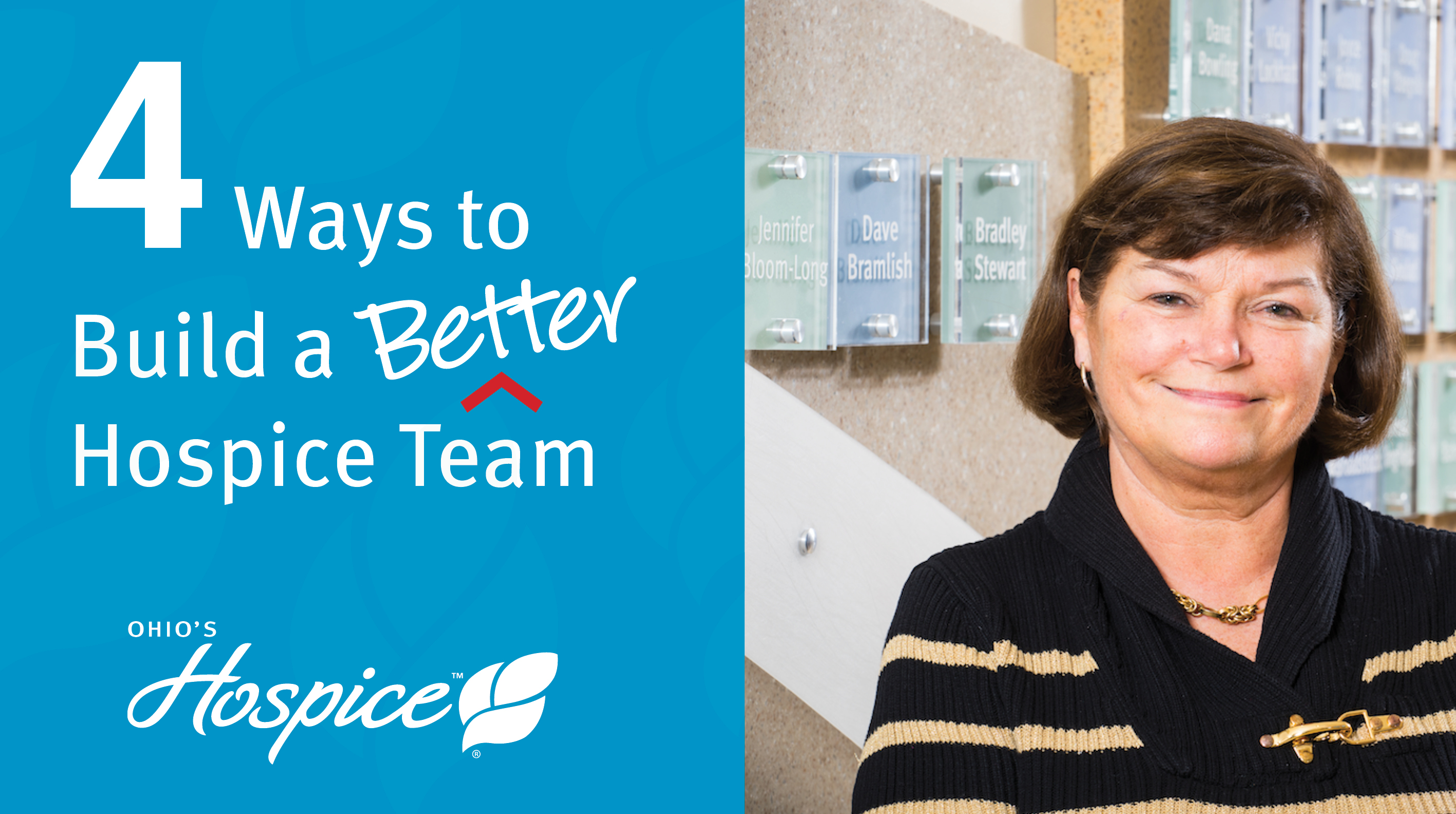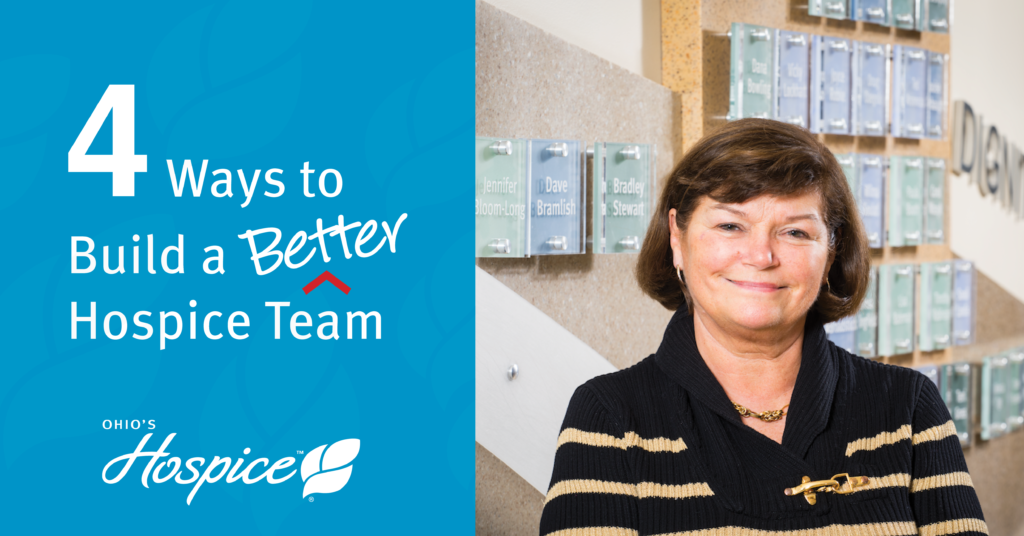
Four Ways to Build a Better Hospice Team
More than a Bunch of Folks: Four Ways to Build a Better Hospice Team
The Centers for Medicare & Medicaid Services require hospice teams to meet every two weeks to review a patient’s plan of care. These teams include a physician, a nurse, a social worker, and a spiritual support person or counselor. They may also include a volunteer, a nursing assistant, an advanced practice nurse, a bereavement specialist, students, or other guests.
These meetings are important for keeping teammates informed and on the same page. But a strong hospice team does more than just meet biweekly. It builds a true collaboration in which team members share their expertise—while focusing on the goals of patients and families.
This approach was introduced by modern hospice founder Dame Cicely Saunders, who designed teams around the physical, emotional, spiritual, and social needs of patients at the end of life. Today’s hospice teams focus on these dimensions—and much more. They evaluate resource needs, address safety concerns, and plan staff support for the complex medical management of patient and family situations. Discussions center on the needs of family, friends, and significant others—and the extensive need for education and support.
Developing a team that can address all of these requirements—and continue to learn and build its competency—isn’t easy.
Here are four ideas from Ohio Hospice on how to do just that. 
- Build team competency
In 2012, the National Hospice and Palliative Care Organization defined three levels of team competency: novice, proficient and expert. Good team communications and the ability to identify patient and family needs are critical at the expert level. To guide a team well, leaders also need:
- Time management skills
- Collaborative team building training and support
- The strength and grace to deal with unique personality styles
- The ability to observe, evaluate and redirect the group’s process
- Equip and empower everyone to do their best
- Respect each discipline and its impact on the Plan of Care; let everyone know you expect them to drive excellence in their field of practice.
- At the same time, make sure that individual team members’ objectives never override those of the patient and family
- Seek outside resources in complex cases.
- Encourage creativity, humor, celebrations, and the acknowledgement of appreciation.
- Continually evaluate the team to push past barriers and demonstrate growth and development.
- Seek additional education to improve team functioning.
- Support the Quality of Life goal
At Ohio’s Hospice, all patients are introduced to their care teams by a social worker, who helps the team understand the individual’s unique identity. Family support, career history, military involvement, funeral plans, DNR status, resource requirements, safety needs and unique challenges are part of this introduction.
The discussion should also include a Quality of Life goal. It may be “controlling pain,” “staying at home,” or a longer-term goal of “meeting a new grandchild.” If the team moves the center of care to support this goal, all members can stay focused and make a unique contribution.
- Seek balance
Finding the sweet spot between team support and team growth is ongoing. Successful leaders acknowledge the changes teammates face, adjust structures as needed, and support staff in meeting patient needs.
Remember, while the team is just a group of people, they are REAL people dedicated to the never-ending, changing mission of care.
Author Profile
Latest entries
 Thought LeadershipNovember 15, 2017Cultivating Critical Thinking Skills in Nursing
Thought LeadershipNovember 15, 2017Cultivating Critical Thinking Skills in Nursing Thought LeadershipMarch 28, 2017Four Ways to Build a Better Hospice Team
Thought LeadershipMarch 28, 2017Four Ways to Build a Better Hospice Team

